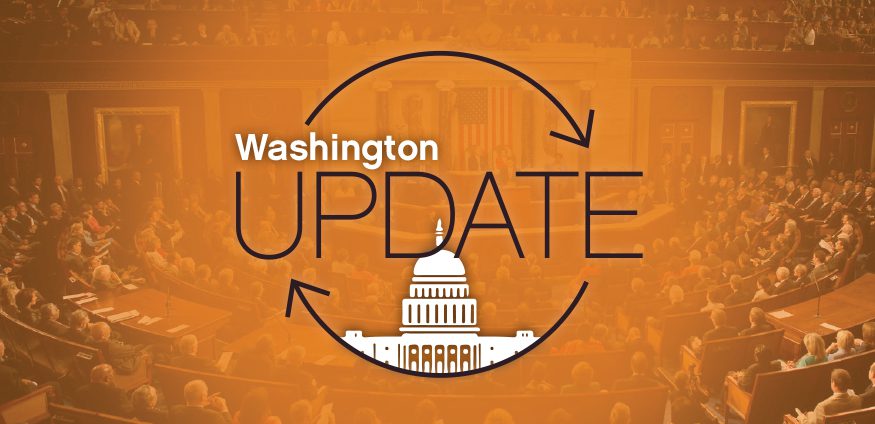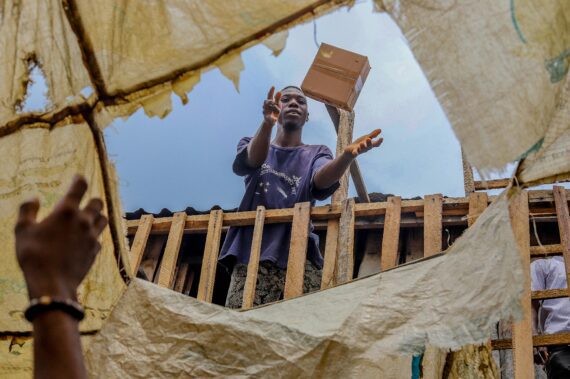Budget
- The House Budget Committee released their fiscal year 2018 budget resolution last week. The resolution passed out of committee on a party line vote. As expected, it included deep cuts to safety-net programs, deep cuts to non-defense discretionary spending, and a fast-track plan (reconciliation instructions) setting the stage for tax reform and $203 billion in mandatory spending cuts later this year.
- The budget narrative document released by the committee explains the overall vision for “Building a Better America” and includes policy recommendations around a variety of areas of government spending. The actual legislative text of the budget resolution includes spending levels and revenues based on their policy assumptions, as well as reconciliation instructions and policy statements on major programs and issues.
- On yearly discretionary spending, the budget resolution provides $1.132 trillion for fiscal year 2018, the same as what the House Appropriation Committee has been working from. However, the resolution proposes $1.3 trillion in discretionary spending cuts over the next 10 years, with all of the savings coming from the non-defense discretionary side of the ledger. This would put all of the yearly funded programs we care about – WIC, summer EBT, international development programs – at risk of deep cuts in the next decade.
- On reconciliation, the resolution instructs 11 committees to find $203 billion in savings from mandatory programs. These instructions set up a fast-track process for Congress to be able to reform the tax code and make cuts to mandatory programs. We are concerned that the reconciliation process could result in cuts to SNAP, Medicaid, refundable tax credits for low-income working families (EITC/CTC), and school meals.
- In addition to the $203 billion in fast-tracked spending cuts, the budget assumes much deeper cuts to safety-net programs. The budget recommends (and assumes Congress will enact) stricter work requirements in safety-net programs like SNAP, Medicaid, and TANF; giving states more flexibility in administering and cutting costs in programs like SNAP and Medicaid; changing community eligibility for school meal programs; and reducing “waste, fraud, and abuse” in refundable tax credits.
- This results in $150 billion in SNAP cuts, $20 billion in cuts to EITC and CTC, $1.6 billion in cuts to school meals, and $114 billion in Medicaid cuts above those proposed by the American Health Care Act.
- The Freedom Caucus is boasting that the House does not have the votes to pass this budget resolution so it is unclear if or when it will be brought to the House floor for a vote. It is unlikely it will be considered before August recess.
Appropriations
The Senate Appropriations Committee moved forward with their Agriculture Appropriations bill this week. It included funding for the following programs:
- WIC received $6.35 billion in funding. However, the bill also includes a rescission of $800 million in unspent funds, resulting in a net funding level of $5.55 billion for FY2018. The House provided a lower overall number for WIC but also included a rescission resulting in $5.55 billion in net funding. That level of funding is expected to be sufficient to meet projected caseload for FY2018. The Senate also included $80 million for breastfeeding peer counselors, an increase of $20 million.
- Summer EBT pilot programs continue to receive $23 million in funding.
- Food for Peace Title II Grants received $1.6 billion in funding, $200 million more than appropriated by the House.
- McGovern-Dole received $206.6 million in funding. The House bill originally appropriated $185 million but increased funding to $201.6 million by amendment during the committee markup.
- Local and Regional Food Aid Procurement, which was one of our wins in the 2014 Farm Bill, also received $15 million in funding. The House did not include funding for this provision.
The Committee also released its topline spending by appropriations subcommittee for fiscal year 2018. In the absence of a budget resolution, the committee has been working from fiscal year 2017 enacted funding levels and their total fiscal year 2018 discretionary spending totals $1.07 trillion. The Budget Control Act cap for fiscal year 2018 is $1.065 trillion. The House Budget Resolution set fiscal year 2018 discretionary spending at $1.132 trillion.
On the House side, the House Appropriations Committee has passed all of their appropriations bills out of committee. Leadership was considering bundling all the bills into an omnibus but instead is moving forward this week with a “minibus” of less controversial spending bills to include Defense, Military Construction and Veterans Affairs, Energy and Water, and Legislative Branch appropriations.
Medicaid
- On Tuesday, July 25, the Senate passed a “motion to proceed,” to begin debate on a bill to either repeal the Affordable Care Act without a replacement plan, or vote on the Better Care Reconciliation Act of 2017.
- Later that evening, the Senate failed to pass the Better Care Reconciliation Act of 2017.
- The “motion to proceed” set in motion a 20-hour window of debate, which will last until Thursday, July 27.
- The Senate will also entertain a series of votes on amendments also called a “voto-rama.” Once “voto-rama” is over, the Senate will vote on the final bill.
- We are urging all Senators to vote NO on any legislation that cuts, rolls back, or repeals Medicaid.
DREAM Act
- Last week U.S. Sens. Durbin (D-Ill.) and Lindsey Graham (R-S.C.) re-introduced the DREAM Act, which would offer a path to citizenship for undocumented immigrant youth – also known as “Dreamers” – who were brought to the United States as children.
- The DREAM Act stands for Development, Relief, and Education for Alien Minors.
- The legislation would grant “Dreamers” permanent legal status and put them on the path to citizenship. “Dreamers” are currently protected from deportation under President Obama’s Deferred Action for Childhood Arrivals (DACA) program.
- Bread for the World fully supports the DREAM Act and is urging all members of Congress to co-sponsor this needed legislation.
African Development Bank and IDA
- The House Finance Committee is marking up a bill on Tuesday, July 25 to reform and authorize a number of World Bank accounts, including the African Development Bank and the International Development Association (IDA).
- IDA makes “concessional loans” to eligible countries, meaning there is either no interest or a very low interest rate, and there is a long repayment period ranging from 25 to 38 years. We have been advocating for these accounts recently, and believe that IDA is poised to make a significant impact in the journey toward the 2030 Agenda, which includes ending hunger, malnutrition, and extreme poverty.
- There is concern about the low funding level of the legislation, as it reflects a $580 million cut for each year for IDA. We will continue to follow this legislation as it moves forward.
Act Now!
The House Budget Committee passed a budget proposal last week that included at least $200 billion in cuts to low-income programs. Call (800-826-3688) or email your representative and senators and urge them to oppose cuts to critical programs, such as SNAP (formerly known as food stamps), Medicaid, refundable tax credits, and international development.
The Senate is expected to vote on a repeal of the Affordable Care Act this week. Call (800-826-3688) or email your U.S. senators and urge them to vote NO on any legislation that cuts, rolls back, or repeals Medicaid.



